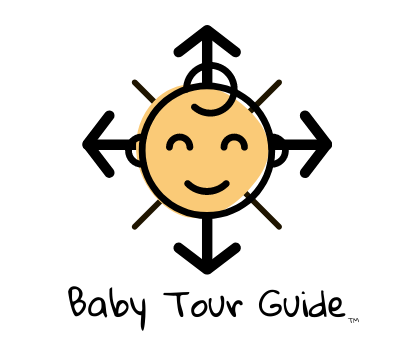Let’s talk all about using Montessori observation as a tool to guide your practice with your precious baby. Observation can be defined as “the process of observing something in order to gain information”. So with that in mind, let’s start with this idea…
Observation is key to understanding how to best support your child on their journey through childhood.

Now what do I mean by that? Well you can use observation in your practice to discover things that otherwise would not be obvious.
For example, say your baby is not eating his peas when you spoon feed him. It is super easy in the moment to assume that he does not like peas. You know?
But what if it could be something else? What if your baby just wants to hold his own spoon and put it in his own mouth? What if your baby likes to use his hands and presenting the peas in a “Baby-Led” format is the way to go?
These are the types of things that observation can catch. Talking a step back and observing your child in the moment is HUGE to uncovering truths about those situations.

Observation in Early Childhood Education
Observation is encouraged in the entire field of Child Development, Early Childhood Education, and Family Sciences, not just Montessori Education.
Early Childhood Educators (0-6) are encouraged to take moments throughout their day whenever possible to sit and watch, with the purpose of learning more about their rapidly developing students and environments.
Observation in Montessori Education
In Montessori, observation is a tool used daily to aid in everything from to knowing when to offer Montessori Lessons to learning about less obvious situations, like reason for conflict.
Since the curriculum in Montessori is the purposeful progression of lessons and materials, observation is key to knowing when and what to offer each child.
Also, observation can be a tool to understanding when your environment needs a change, like rearranging furniture, adding in materials to foster certain levels of independence, and more.

Typically, the child development assessment areas that one would observe are:
- Social-Emotional Development
- Gross-Motor Development
- Fine-Motor Development
- Cognitive Development
- Language Development
- Visual Development
That said, in Montessori, working with Infants and Toddlers means that you are also working to “help them help themselves”, which is another way to say foster independence. 🙂
So I like to also observe and optimize the following categories:
- Independence in Feeding
- Independence in Sleeping
- Independence in Movement
- Independence in Diapering
I actually created a little something special for those in our Baby Tour Guide Community… (See below)
Pro tip: I always try to be as unbiased as possible in my observations and that has been HUGE in getting the most out of my observations.
Example: Instead of observing and writing that “he spit out his peas because he didn’t like them” (which assumes that baby doesn’t like peas), try saying something like “he spit out his peas, squinted his eyes, and scrunched his face.” This then could evolve into something else depending on what you try next! (For example, he may not have liked the texture, temperature, etc.)
I would absolutely love to hear how observations have helped in your practice with your sweet babies and toddlers! Let me know in the comments below!

Excellent site you have here.. It’s difficult to find high quality
writing like yours these days. I honestly appreciate individuals like you!
Take care!!
Thank you so much for your sweet message! So glad to have you in our community! You take care as well! 🙂
Like!! Thank you for publishing this awesome article.
Thank you! So happy to have you here! 🙂